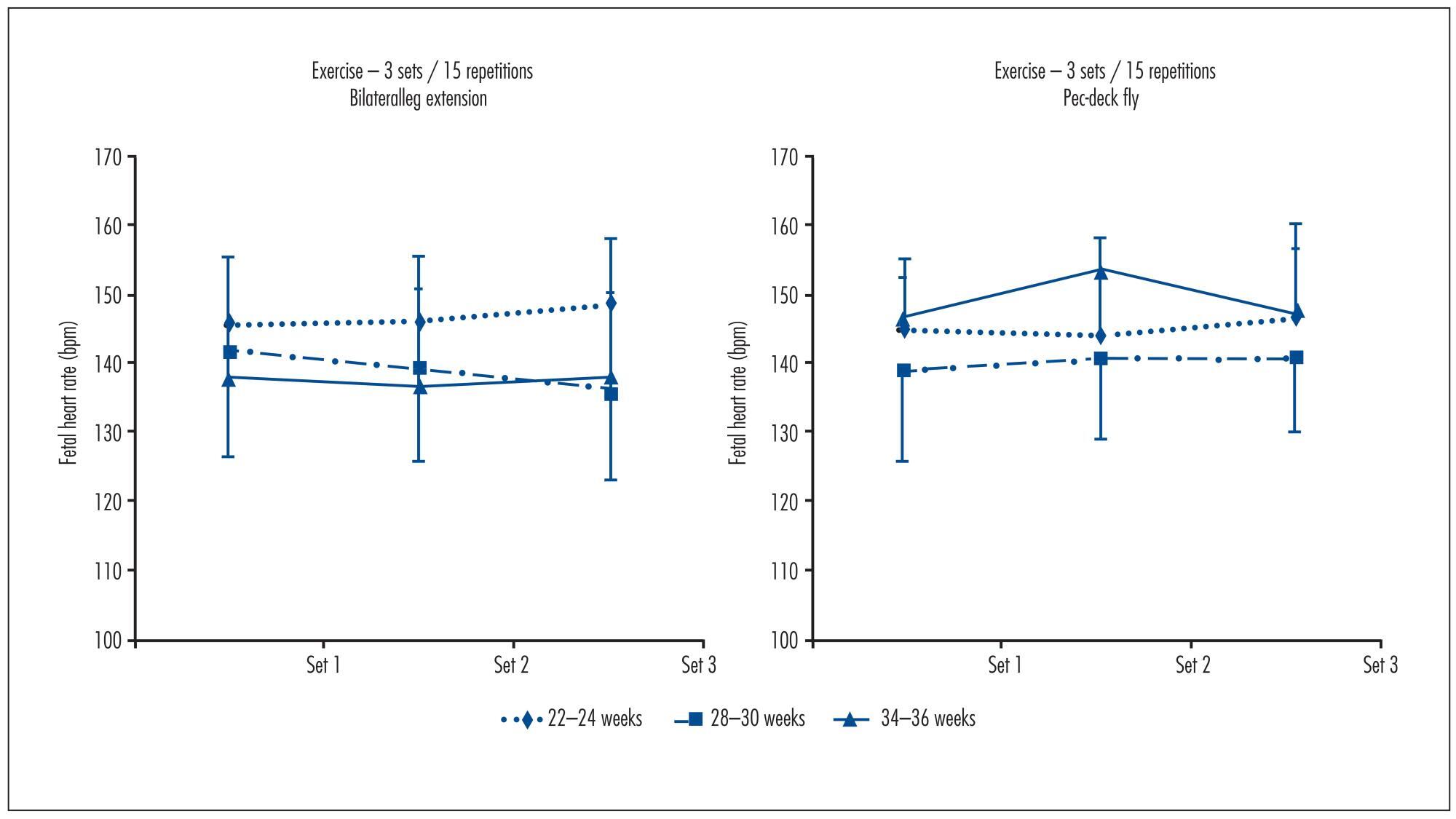Revista Brasileira de Ginecologia e Obstetrícia. 03-01-2015;37(3):133-139

To determine fetal heart rate (FHR) responses to maternal resistance exercise for the upper and lower body at two different volumes, and after 25 minutes post-exercise.
Ten pregnant women (22-24 weeks gestation, 25.2±4.4 years of age, 69.8±9.5 kg, 161.6±5.2 cm tall) performed, at 22-24, 28-32 and 34-36 weeks, the following experimental sessions: Session 1 was a familiarization with the equipment and the determination of one estimated maximum repetition. For sessions 2, 3, 4 and 5,FHR was determined during the execution of resistance exercise on bilateral leg extension and pec-deck fly machines, with 1 and 3 sets of 15 repetitions; 50% of the weight load and an estimated repetition maximum. FHR was assessed with a portable digital cardiotocograph. Results were analyzed using Student’s t test, ANOVA with repeated measures and Bonferroni (α=0.05; SPSS 17.0).
FHR showed no significant differences between the exercises at 22-24 weeks (bilateral leg extension=143.8±9.4 bpm, pec-deck fly=140.2±10.2 bpm, p=0.34), 28-30 weeks (bilateral leg extension=138.4±12.2 bpm, pec-deck fly=137.6±14.0 bpm, p=0.75) and 34-36 weeks (bilateral leg extension=135.7±5.8 bpm, pec-deck fly=139.7±13.3 bpm, p=0.38), between the volumes(bilateral leg extension at 22-24 weeks: p=0.36, at 28-30 weeks: p=0.19 and at 34-36 weeks: p=0.87; pec-deck fly at 22-24 weeks: p=0.43, at 28-30 weeks: p=0.61 and at 34-36 weeks: p=0.49) and after 25 minutes post-exercise.
Results of this pilot study would suggest that maternal resistance exercise is safe for the fetus.
Search
Search in:


Comments